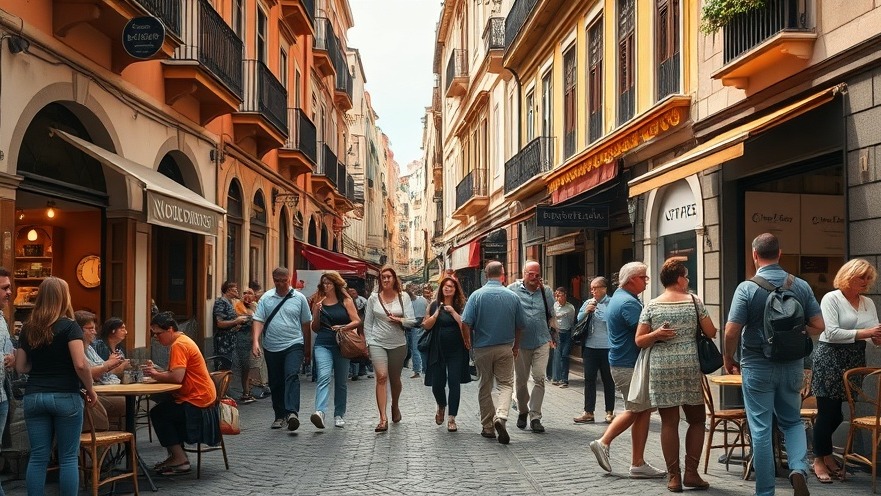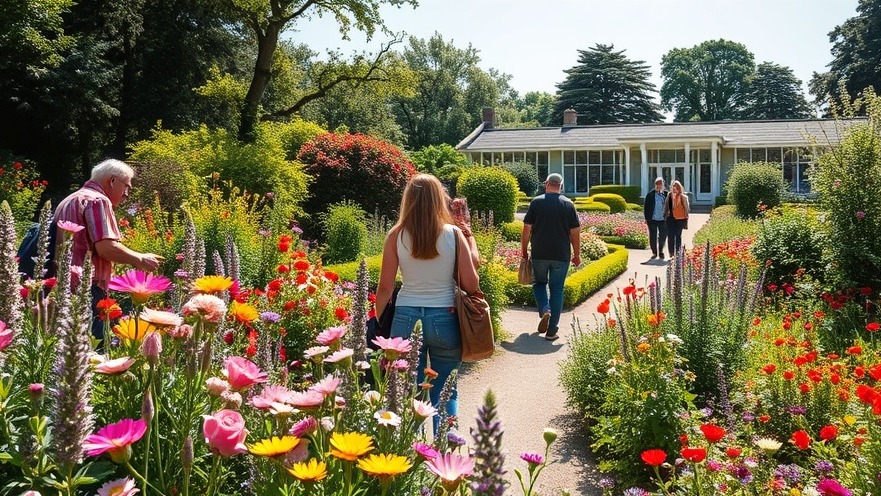
The Alarming Toll of Plastic Pollution on Human Health
Plastic pollution has emerged as a formidable threat to not only our environment but also human health. As recent studies indicate, we are grappling with an escalating crisis where the proliferation of plastic materials is linked to various health issues. From respiratory problems caused by airborne microplastics to hormonal disruptions linked to chemical leaching from plastic products, the evidence is mounting. The persistent presence of plastic waste in our ecosystems compromises food security and impacts biodiversity, creating a ripple effect on human populations.
Economic Implications: The Billions and Trillions at Stake
According to estimates, the economic cost of plastic pollution could soar into the trillions of dollars. This staggering figure includes the costs related to healthcare, pollution clean-ups, and impacts on tourism and fisheries impacted by plastic waste. For boutique hospitality professionals, this is a critical juncture; the underlying health risks associated with plastic pollution increase operational risk and could deter eco-conscious travelers seeking sustainable options.
Why Sustainable Packaging Matters for the Hospitality Sector
For small-scale hotel owners, Airbnb hosts, and guesthouse managers, adopting sustainable packaging practices can significantly reduce their ecological footprint. Switching to biodegradable or compostable materials not only supports a zero-waste philosophy but aligns business practices with the burgeoning trend of corporate social responsibility. By investing in sustainable packaging, these businesses can attract environmentally aware travelers, thus enhancing their brand’s reputation and potentially increasing revenues.
The Role of Circular Economy in Tackling Plastic Pollution
The concept of a circular economy provides a promising framework for addressing plastic pollution effectively. By rethinking our supply chain processes and focusing on materials that can be reused, recycled, or composted, boutique accommodations can contribute to a significant decrease in waste generation. This regenerative business model not only helps in eliminating waste but also fosters innovative solutions that reflect a commitment to sustainability.
Adopting Regenerative Business Practices
As pioneers in sustainable lodging, boutique hospitality operators can lead by example in their communities. Embracing regenerative business practices involves going beyond just sustainability; it means actively improving the ecosystems and communities in which they operate. Initiatives may include sourcing local organic products, engaging in community clean-up programs, or partnering with eco-conscious suppliers. These efforts can enhance guest experiences and strengthen community ties.
Practical Steps Toward a Plastic-Free Future
For entrepreneurs in the eco-lodging industry, practical steps to combat plastic pollution include reducing single-use plastics, optimizing waste management practices, and collaborating with organizations dedicated to environmental preservation. Furthermore, guests can be educated about the benefits of choosing sustainable options. By creating engaging and informative experiences, hosts can inspire their guests to participate in their sustainability initiatives.
How Guests Feel About Plastic Pollution
Guests today are increasingly concerned about their environmental impact and demand accountability from businesses. Surveys show that travelers often research the sustainability practices of lodgings they plan to choose. By effectively communicating their sustainable practices and plastic reduction strategies, boutique hospitality leaders can differentiate themselves and deepen their connection with eco-conscious travelers who share their values.
Inspiring Change Within the Industry
It’s important to acknowledge that the shift toward sustainability is not just beneficial for the environment—it is ultimately a competitive advantage. By adopting best practices in waste reduction and sustainable sourcing, boutique hospitality owners can appeal to a growing market of eco-friendly consumers. Their proactive approach towards sustainability can promote resilience and long-term profitability even amid dire warnings about the future of our planet.
As the movement towards eliminating waste gains momentum, every action counts. Small adjustments in operations can lead to substantial outcomes, making sustainable practices not just a trend, but a necessary component of business strategy.
To learn more about how your business can actively contribute to a plastic-free future, engage with your local environmental groups, participate in sustainability workshops, or track your operational footprint. The call to action is clear: the time to act is now!
 Add Row
Add Row  Add
Add 




Write A Comment